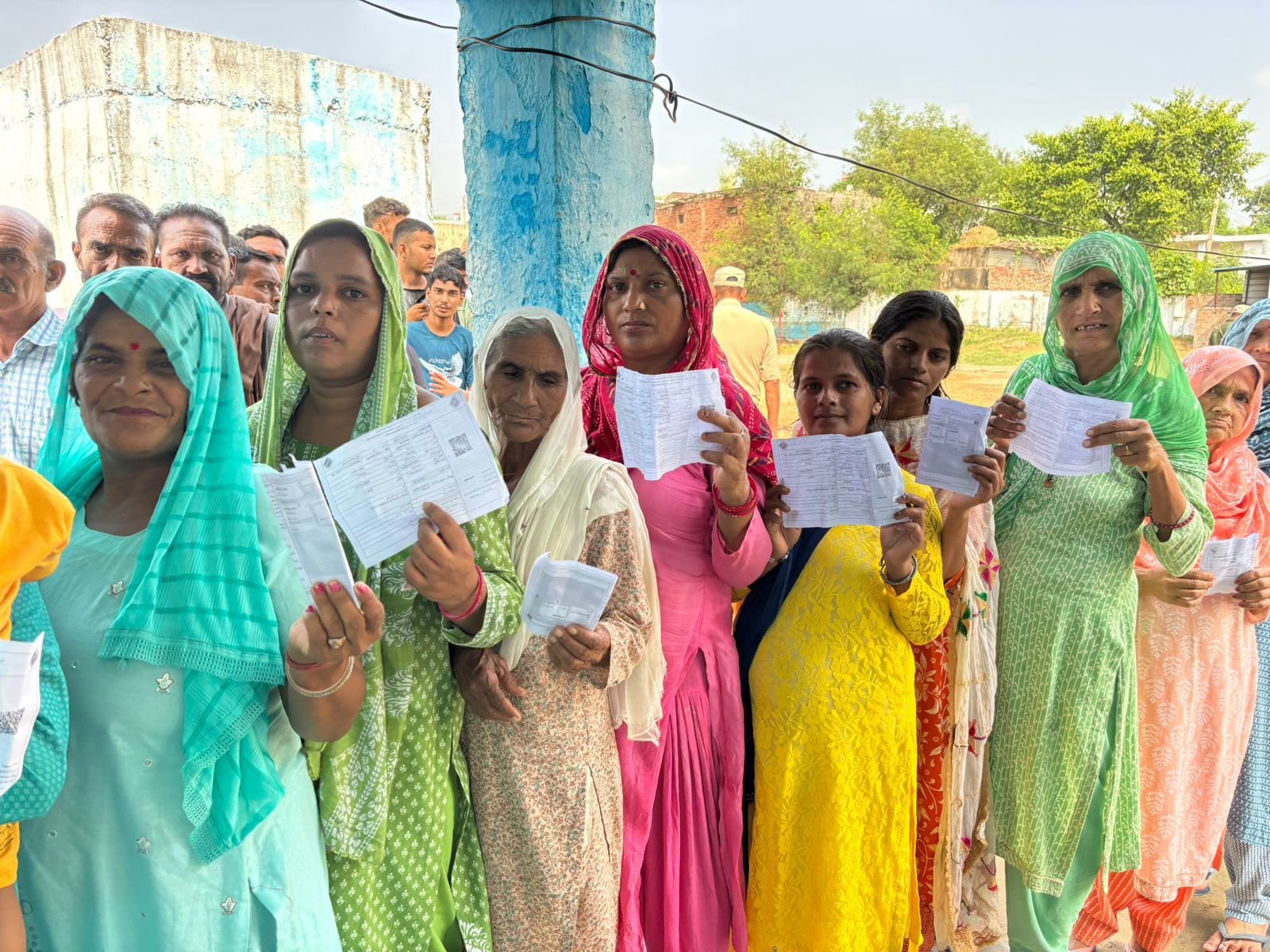JAMMU: The third and final phase of the Jammu and Kashmir Assembly elections concluded today with rural areas showing a brisk voter turnout. At the same time, most of the 24 seats across four districts of the Jammu region saw a decline in voting percentages compared to the 2014 elections. Notably, the urban constituencies of Jammu district, including Jammu East, West, Bahu, and Jammu South-RS Pura, registered significantly lower voter participation compared to the rural seats.
The Akhnoor seat saw the highest turnout at 79.70%, followed closely by Marh and Chhamb at 79% each, while Jammu West lagged with only 57.65% voter participation. Overall, the polling percentage for the 40 seats in this final phase stood at 68.72%, contributing to a tentative turnout of 63.45% across all 90 seats over three phases.
Among the districts that voted today, Udhampur topped with 75.87% turnout, followed by Samba at 75.22%, Kathua at 72.23%, and Jammu at 70.25%. Some areas saw a sharp decline in voter turnout compared to 2014, particularly RS Pura-Jammu South, which dropped by 12%, likely influenced by the redrawing of boundaries during the delimitation process. Other constituencies witnessing declines included Kathua (8%), Suchetgarh Jammu West (7%), and Nagrota (6%).
ALSO READ: Security tight as North Kashmir readies for Assembly vote – THE NEW INDIAN
In contrast, Chhamb and Chennai were the only constituencies that saw an increase in voter turnout, with Chhamb rising by 2.5% and Chennai by 1.5% compared to 2014. Despite minor technical issues with electronic voting machines (EVMs) and occasional tensions between rival party supporters, the election was peaceful, with no significant incidents reported from any of the 24 constituencies.
These elections are particularly notable for West Pakistani refugees, Valmikis, and Gorkhas, who cast their votes in Jammu district’s assembly polls for the first time in decades. Until the abrogation of Article 370 on August 5, 2019, they were denied citizenship rights and could only vote in parliamentary elections.
In the 11 constituencies of Jammu district, Bishnah recorded a 74% turnout, Suchetgarh 71%, RS Pura-Jammu South 65%, Bahu 60.51%, Jammu East 62%, Nagrota 77.7%, Jammu West 57.65%, Jammu North 72%, Akhnoor 79.70%, Marh 79%, and Chhamb 79%. Meanwhile, in Kathua district’s six seats, Bani saw 71.24%, Billawar 69.64%, Basohli 67.24%, Jasrota 71.79%, Kathua 71.49%, and Hiranagar 71.18%.
The Election Commission hailed the peaceful conduct of the polls, with Chief Election Commissioner Rajiv Kumar stating that these elections represented a significant deepening of democracy in the region. He commended the voters of Jammu and Kashmir for their resilience and commitment to the democratic process.
ALSO READ: J&K cop killed in Kathua encounter after gunning down terrorist – THE NEW INDIAN
The 2024 elections saw a rise in the number of candidates compared to the 2014 elections, with a 7% increase in total participants. The number of female candidates grew from 28 to 43, and there was a 26% rise in independent candidates. Additionally, Registered Unrecognized Political Parties (RUPPs) saw a dramatic 71% increase in participation, from 138 parties in 2014 to 236 in 2024.
Voter participation remained peaceful and organized, thanks to meticulous planning and vigilance by the Election Commission. With increased security and efforts to curb illegal practices, law enforcement agencies seized goods worth Rs 130 crores, the highest in J&K’s election history, exceeding the Rs 100.94 crore seizures from the 2024 Lok Sabha elections.
The peaceful conclusion of the polls, completed in three phases this year as opposed to five phases in 2014, was a significant achievement. No major law and order incidents were reported, a marked improvement from 2014, when 170 incidents occurred, including 87 on polling days. Additionally, no complaints of preventive detention of political figures were recorded, a unique development for these elections.
The votes are now sealed, and with the election process complete, counting will take place on October 8, determining the future political landscape of Jammu and Kashmir.

